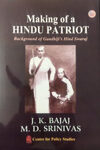Indian Agriculture before Modernisation
The task of the historian who will search for elements of scientific knowledge in the Today, most educated Indians would cite our traditional agriculture as an obvious illustration for the centuries of stagnation and decay that are supposed to characterise our traditional society. Almost everyday and everywhere, one hears emphatic assertions that it is the age-old, unscientific, backward and primitive character of our agriculture which has been and remains the cause of widespread hunger, malnutrition and poverty in our country. Most people accept on faith the view that our salvation lies in calling upon modern science and technology to perform their widely publicised miracles such as the so-called Green Revolution.
The Story of Modern Forestry in India.
The Indian Forest Department celebrated its centenary in 1961. A publication brought out by the Forest Research Institute on the occasion declared that, ‘Scientific forestry in India is a hundred years old.’ Regarding the general history of Indian forests prior to this period, it stated:
A Debate on the State of Indian Architecture and Architects Ninety Years Ago At the coronation durbar held in Delhi in December 1911, the new King, Emperor George V, proclaimed the transfer of the capital of India from Calcutta to Delhi. “The result”, as Robert Grant Irving describes, “was the creation of Imperial Delhi (or New Delhi). A deliberate and explicit political act, the city was envisaged as a manifesto of British rule in India



